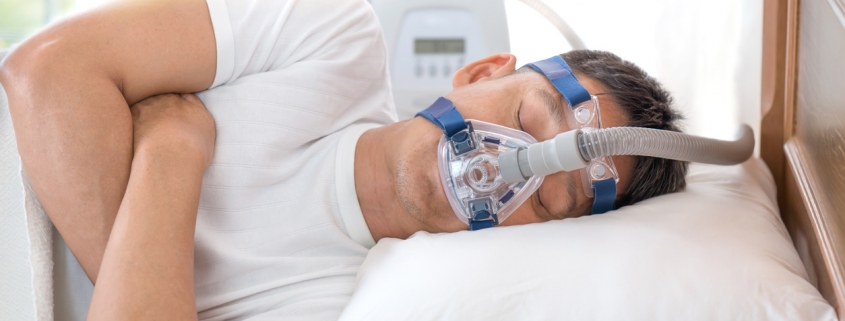Sleep Apnea
Sleep apnea occurs when a person has pauses in their breathing during their sleep, but they may not know it. However, there are a few distinct symptoms that a person with sleep apnea will have, such as those that are listed below.
Snoring
Snoring can be an issue all on its own and may not indicate that the person has sleep apnea, but it is one of the most common symptoms amongst patients. This is because something is obstructing their airway and when the air cannot flow properly, snoring occurs.
Difficulty Concentrating
People often face this issue when they’re unable to get enough sleep during the night. Because sleep apnea disrupts a person’s sleeping pattern, it leaves them feeling exhausted in the morning, even if they don’t wake from their sleep apnea. Those who suffer from sleep apnea also have low levels of gamma-Aminobutyric acid and glutamate, two chemicals that are needed for regular brain function and to ensure a good night’s rest.
Irregular Breathing During Sleep
This is by far the most distinct symptom that a person with sleep apnea will exhibit. The pauses in the sleep that are known as apneas in the medical world can last anywhere from 10-30 seconds, and in severe cases can happen every few minutes. Those who sleep with a partner at night may notice the signs of this symptom as it can come in the form of choking or gasping, but other times the apnea is silent.
Headaches Upon Waking
When people with sleep apnea fall asleep, the brain sends a message to the rest of the body to dilate the arteries so that it can conserve oxygen and maximize blood flow throughout the body since the proper amount of oxygen is not being taken in. This dilation, however, causes pressure in the head, causing sufferers to wake up with a pounding in their skull. This often fades after a few hours of regular breathing.
Dry Mouth
Since breathing through the nose is difficult when you have sleep apnea, this causes the person to breathe through their mouth in order to try and get enough oxygen. This naturally dries the saliva that the mouth produces, therefore making the mouth feel rough and dry.
Frequent Waking
Again, this symptom may not indicate sleep apnea as many people wake during the night. However, what sets it apart is that people with sleep apnea find no reason for their body to wake during the night, such as using the bathroom, hunger, or a bad dream.
High Blood Pressure
Sleep apnea often goes hand in hand with poor cardiovascular health. This is because oxygen is needed in the blood in order to move properly throughout the body. When the heart doesn’t detect enough oxygen in the blood it has to work harder in order to pump blood throughout the body. Because of overexertion, your blood pressure rises, which goes hand in hand with stress levels as well. Severe, untreated sleep apnea can further lead to conditions such as obesity, stokes, and even heart attacks.
Luckily, there are options. For more severe cases, a CPAP machine is available to make sure that a person stays breathing throughout the night. For milder cases, your dentist can offer a device. To discuss your options, schedule a consultation with your dentist.

